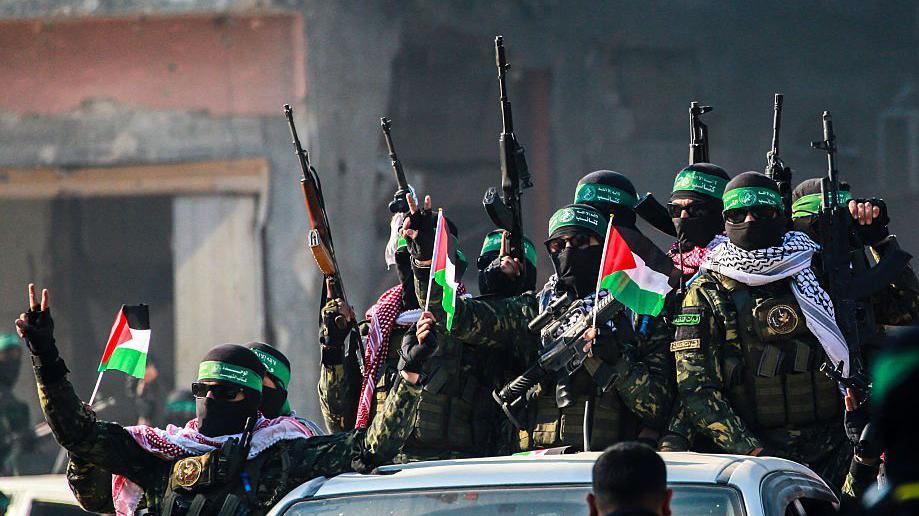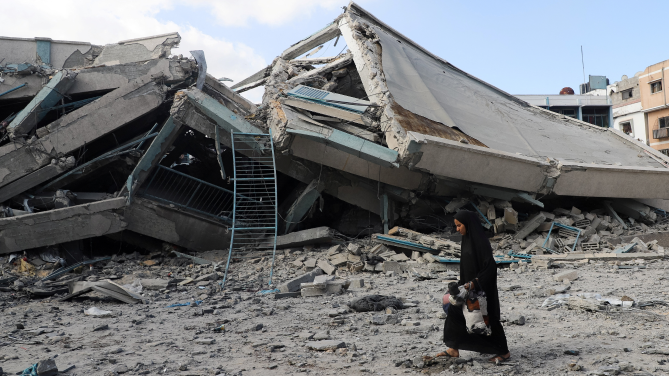Trump urges mediators to 'move fast' as key Gaza peace talks set to begin
Watch: Hostages could be freed 'very soon', says Trump
- Published
US President Donald Trump has urged everyone involved in efforts to end the Gaza war to "move fast" as mediators are set to meet in Egypt on Monday for indirect peace talks between Hamas and Israel.
The talks come after Hamas agreed to some parts of a 20-point US peace plan, including freeing hostages and handing over Gaza governance to Palestinian technocrats, but is seeking negotiations on other issues.
The group's response did not mention the key demands of its disarmament and playing no future role in Gaza's governance.
Writing on social media that talks had been "very successful", Trump said: "I am told the first phase should be completed this week, and I am asking everyone to move fast."
The US president added that "time is of the essence or massive bloodshed will follow".
Speaking to reporters earlier, Trump said he thought the hostages would start to be freed "very soon".
When asked about flexibility over his peace plan, Trump said "we don't need flexibility because everybody has pretty much agreed to it, but there will always be some changes".
"It's a great deal for Israel, it's a great deal for the entire Arab world, Muslim world, and world, so we're very happy about it," he added.
Meanwhile, Israeli air strikes continued in Gaza, despite Trump telling Israel to "immediately stop the bombing" on Friday after Hamas responded to the proposed plan.
Israeli government spokesperson Shosh Bedrosian told reporters on Sunday that "while certain bombings have actually stopped inside of the Gaza Strip, there's no ceasefire in place at this point in time".
Bedrosian said Prime Minister Benjamin Netanyahu had given orders "to fire back for defensive purposes... if there is a threat to their life in the battlefield in Gaza".
Reports from Gaza say Israel continued air strikes and tank fire overnight and into Sunday, destroying a number of residential buildings in Gaza City.
A BBC correspondent heard explosions from inside Gaza and saw a plume of smoke while near the border in Kibbutz Be'eri, Israel, on Sunday morning.
Another 65 people were killed by Israeli military operations in the 24 hours leading up to midday, Gaza's Hamas-run health ministry said.
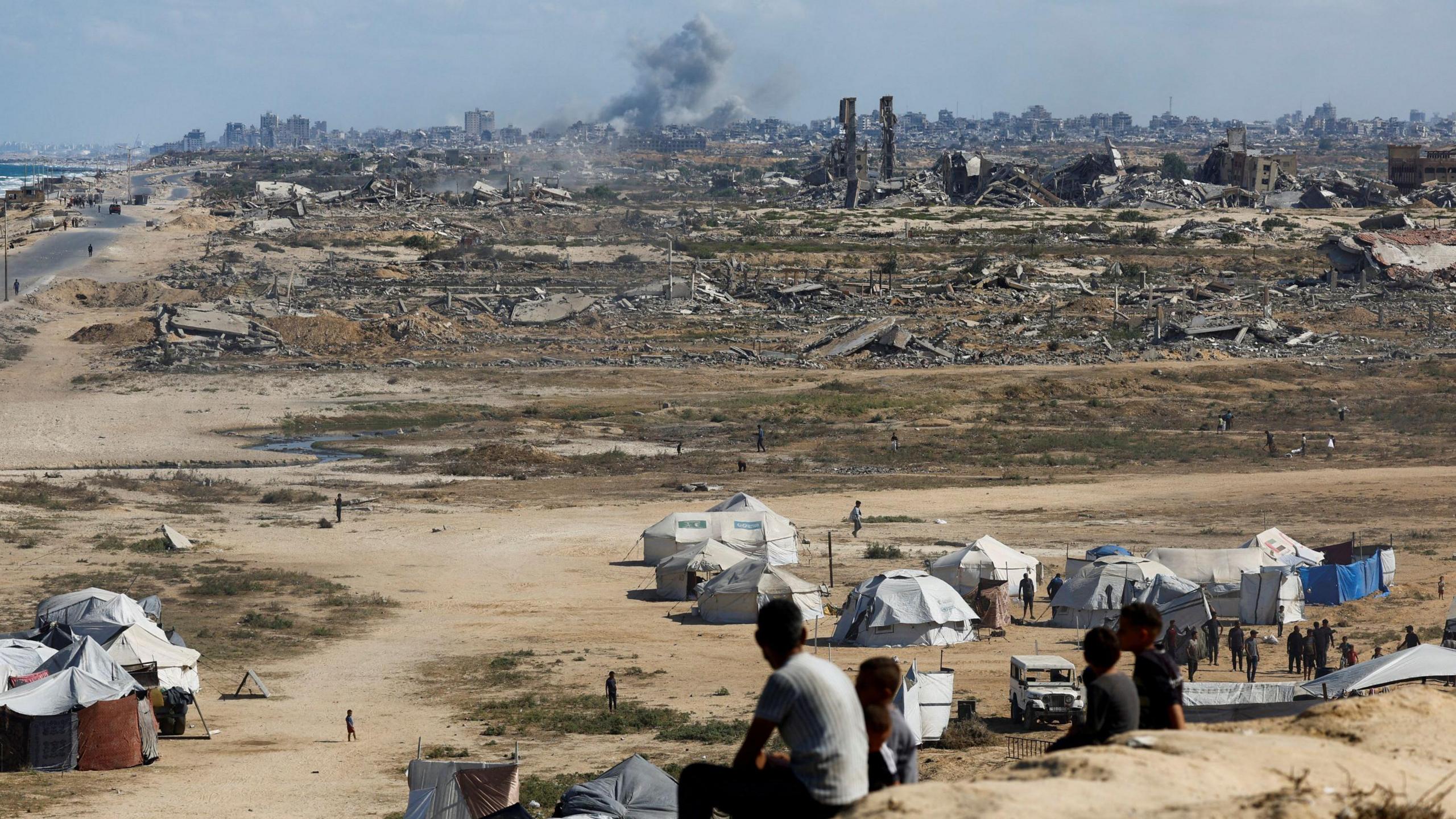
Israel has reportedly not stopped bombing Gaza despite the plan, with 65 killed in a 24 hour period this weekend according to the Hamas-run health ministry
US Secretary of State Marco Rubio told the BBC's US news partner CBS that bombing needed to stop to facilitate a hostage release.
"You can't release hostages while there's still bombardments going on... that has to stop, but you also have to work through the other logistics," he said.
"We want to get the hostages out as soon as possible."
The 20-point plan proposes an immediate end to fighting and the release of 48 hostages, only 20 of whom are thought to be alive, in exchange for hundreds of detained Gazans.
Netanyahu said in a televised address on Saturday that he hoped to announce the release of hostages "in the coming days".
The prime minister has "made it clear that in an agreement with the Trump administration, talks will be confined to a few days maximum", Bedrosian said.
Netanyahu ordered the departure of the Israeli delegation for the crucial talks on Monday.
A Hamas delegation headed by chief negotiator Khalil al-Hayya - one of the targets of an Israeli assassination attempt in Doha, Qatar last month - was due to arrive in Cairo on Sunday night.
US special envoy Steve Witkoff, Trump's son-in-law Jared Kushner and Qatari foreign minister Sheikh Mohammed bin Abdulrahman Al Thani will also attend.
The talks are expected to be among the most consequential since the start of the war and could determine whether a path toward ending the conflict is finally within reach.
Many Palestinians described Hamas' response to the peace plan as unexpected, after days of indications that the group was preparing to reject or at least heavily condition its acceptance of Trump's peace plan proposal.
Instead, Hamas refrained from including its traditional "red lines" in the official statement, a move many interpret as a sign of external pressure.
A senior Palestinian official familiar with the talks told the BBC that Qatari, Egyptian and Turkish mediators played a major role in convincing Hamas to tone down its objections and to leave contentious points such as the fate of its weapons, Gaza's post-war governance, and its other concerns for the negotiation table.
Many Gazans warn that this tactical flexibility carries considerable risk.
Every additional day of delay means more deaths, destruction and displacement for hundreds of thousands of Gazans.
Yet Hamas' decision to enter the talks without explicit conditions could also be seen as a recognition of its limited leverage after nearly two years of war.
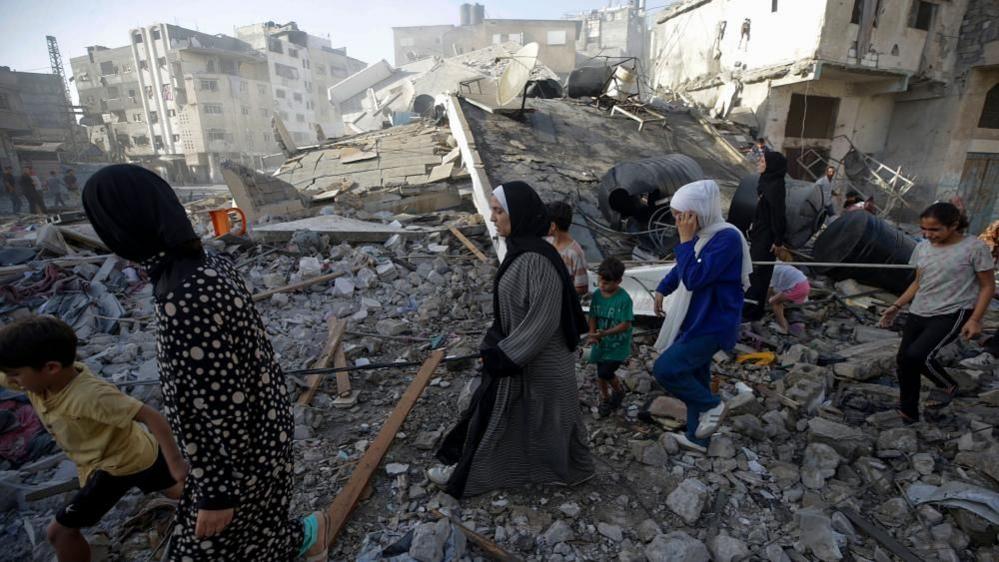
People in Gaza City inspect the rubble of their former home following Israeli strikes on Friday
When asked by CNN's Jake Tapper what would happen if Hamas insisted on staying in power in Gaza, Trump responded that the group would face "complete obliteration".
The US president posted on social media that Israel had agreed to an initial withdrawal line in Gaza, the first in a proposed series of pull-backs by Israeli forces.
The withdrawal map published by Trump would initially exclude nearly 900,000 Palestinians from returning to their homes, according to population distribution data on the Gaza Strip.
The proposed lines carve out Rafah at the southernmost edge, Beit Hanoun, and Beit Lahia in the north, nearly a quarter of Gaza City, and half of Khan Younis and Deir al-Balah in the centre and south.
Hamas had rejected a similar map during previous rounds of talks in March and May this year.
The Israeli military launched a campaign in Gaza in response to the Hamas-led attack on southern Israel on 7 October 2023, in which about 1,200 people were killed and 251 others were taken hostage.
Since then, 67,139 have been killed by Israeli military operations in Gaza, the health ministry says.
International journalists have been banned by Israel from entering the Gaza Strip independently since the start of the war, making verifying claims from both sides difficult.
For now, the region holds its breath as negotiators prepare to gather in Egypt, hoping that despite deep mistrust and political fragility this round might finally open the way toward a ceasefire.
Related topics
- Published4 October
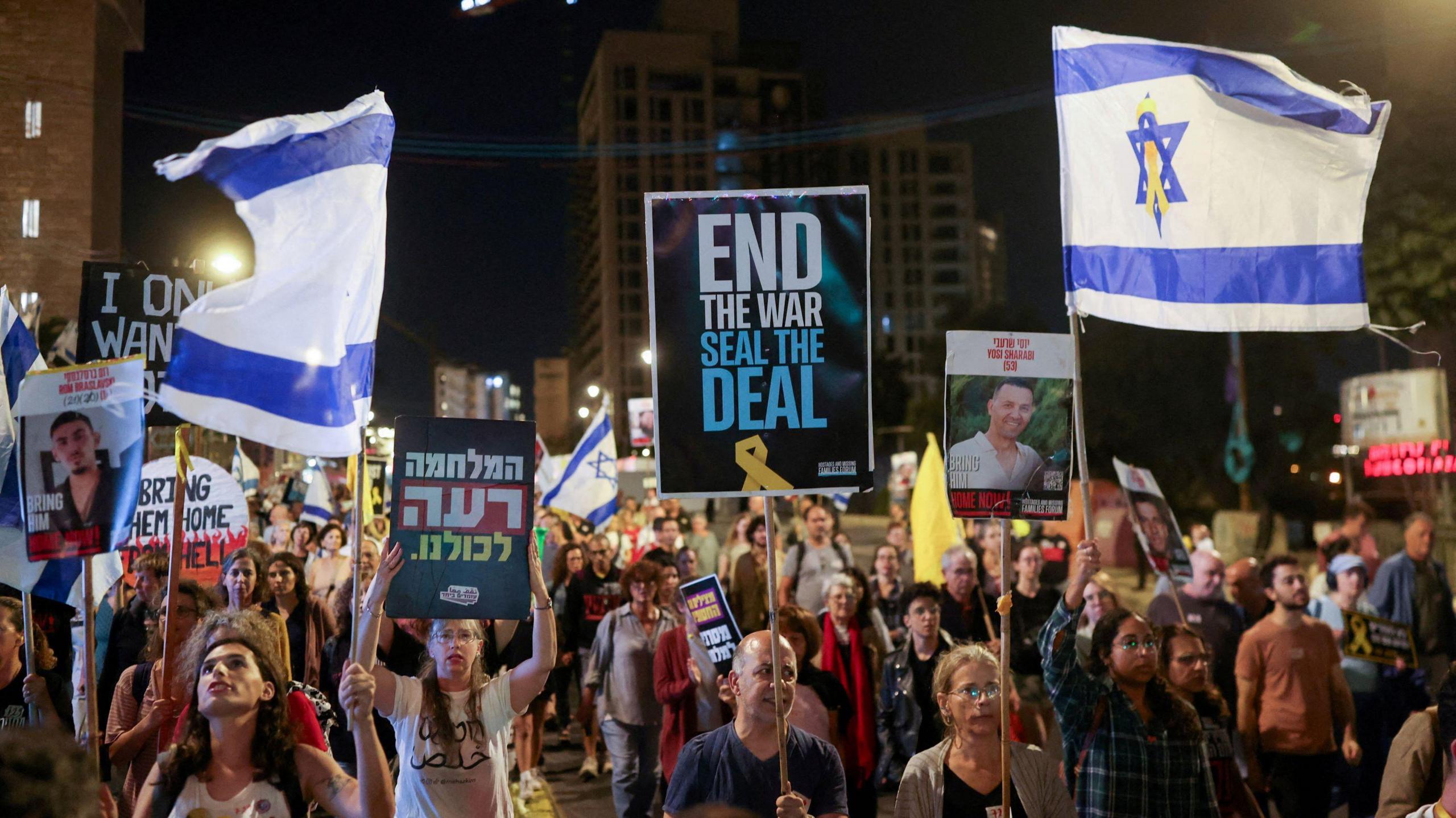
- Published14 October
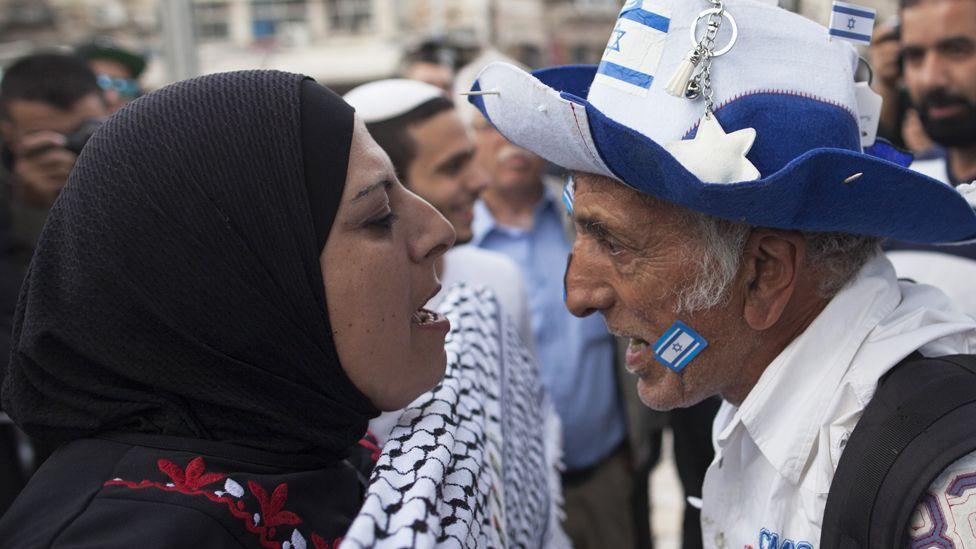
- Published14 October
